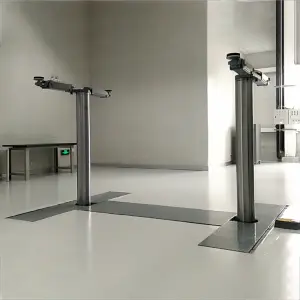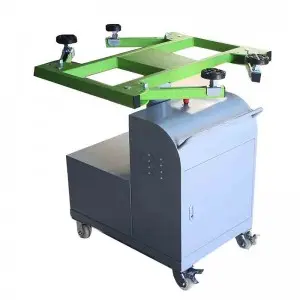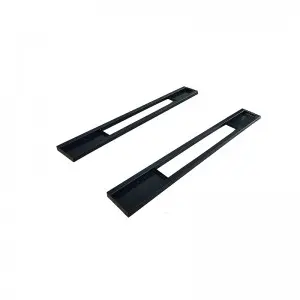Cylinders are a fundamental shape that plays a crucial role in various fields of engineering and design. With its simple yet versatile form, cylinders are employed in a wide range of applications, from machinery and transportation to architecture and everyday products. In this article, we will explore the significance of cylinders in modern engineering and design.
One of the key characteristics of a cylinder is its uniform cross-section, which is constant along its height. This property makes cylinders ideal for applications that require rotational symmetry or the containment of fluids and gases. The cylindrical shape provides structural integrity and efficient packing of materials, making it a popular choice in many engineering applications.
In mechanical engineering, cylinders are commonly found in hydraulic systems, engines, pumps, and pistons. Hydraulic cylinders, for example, are used to convert fluid power into linear mechanical force and motion. These devices play a crucial role in heavy machinery, construction equipment, and manufacturing processes. The simplicity and reliability of cylinders make them a preferred choice for high-pressure and high-force applications.

The Versatile Cylinder: A Key Element in Modern Engineering and Design
In automotive engineering, cylinders are a key component of internal combustion engines. These cylinders house the pistons that move up and down to convert the chemical energy of fuel into mechanical work. The number of cylinders in an engine, along with their configuration and displacement, determines the power output and efficiency of the vehicle. The design and optimization of cylinder geometry and combustion processes are essential for improving engine performance and fuel efficiency.
Cylinders are also prevalent in aerospace engineering, where they are used in aircraft engines, hydraulic systems, and landing gear. The lightweight and high-strength properties of cylinders make them well-suited for aerospace applications. From the fuselage to the propulsion systems, cylinders are integrated into various aircraft components to ensure reliability and performance under extreme conditions.
Architectural design often incorporates cylinders in the form of columns, pillars, and support structures. The cylindrical shape provides load-bearing capacity and visual appeal to building structures. Columns with a circular cross-section are commonly used in classical and modern architecture to support vertical loads and create an aesthetic impact. The use of cylinders in architectural design is not limited to structural elements but extends to furniture, lighting fixtures, and interior spaces.

The Versatile Cylinder: A Key Element in Modern Engineering and Design
In product design, cylinders are utilized in a wide range of consumer goods, appliances, and industrial equipment. From containers and packaging to tools and machinery, cylinders play a vital role in product functionality and aesthetics. The cylindrical form factor is practical for storage, transportation, and assembly of goods, making it a popular choice for manufacturers and designers.
The versatility of cylinders extends beyond traditional engineering and design disciplines. In art, cylinders are a common motif in sculpture, pottery, and architecture. The smooth, curved surfaces of cylinders allow artists to create dynamic and expressive forms that evoke movement and balance. From ancient Greek columns to modern abstract sculptures, cylinders have been used as a visual symbol of strength, stability, and unity.

The Versatile Cylinder: A Key Element in Modern Engineering and Design
Overall, the cylinder is a key element in modern engineering and design due to its versatility, efficiency, and aesthetic appeal. Whether in mechanical systems, architectural structures, or consumer products, cylinders continue to play a vital role in shaping our built environment and everyday experiences. As technology advances and design trends evolve, the enduring appeal of the cylinder is likely to endure as a timeless and essential shape in the world of engineering and design.quick lift car lift
